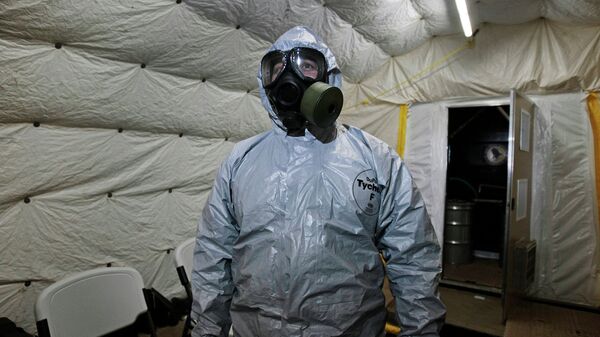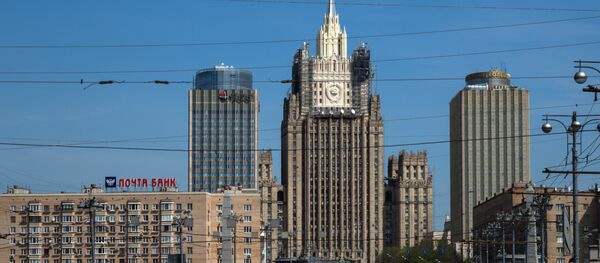Earlier in the day, the OPCW said that its fact-finding mission had established the use of sarin, a gas used as a chemical weapon, in the April 4 Idlib incident.
"We are sure that the report leaves a lot of important questions without answers … We saw the photos [from the site of the incident] were the medics could be seen. They were working without any protective gear. We asked how could it happen that the doctors were working in such conditions without protective equipment and somehow were not infected. But there is no answer in the released report. There is no explanation," Shulgin told the RT broadcaster.
The envoy underlined that Russia had repeatedly urged the OPCW mission to conduct investigations on the ground in the Idlib province. However, despite this being the logical course of action, the organization preferred to work remotely.
Shulgin also stressed that the report’s authors failed to identify the type of weapons that were used in the incident and locate the exact place where the attack happened.
"They failed to locate the site, where the attack was made. They did not have any access to the hospitals, where the injured were treated," the Russian envoy noted.
Th envoy concluded by saying that Moscow's firmly stands by its stance that the results in the report are based on questionable data that was provided by the Syrian opposition and by the infamous White Helmets group.
Reacting to the incident, Washington, which had not presented any proof of chemical weapon use by Damascus, launched 59 cruise missiles at the Syrian governmental military airfield in Ash Sha’irat on April 7.
On April 21, Assad told Sputnik that there was no chemical weapon attack in Idlib, adding that the reports of it were a false flag and fabrication which was supposed to justify a US missile strike on the Syrian airbase.


